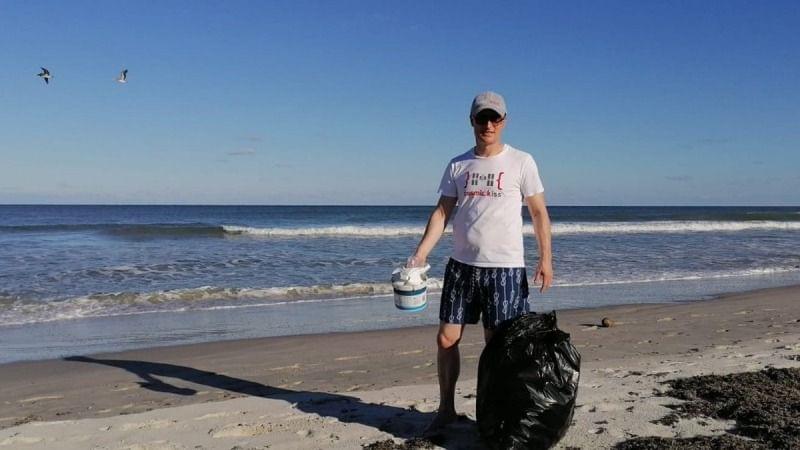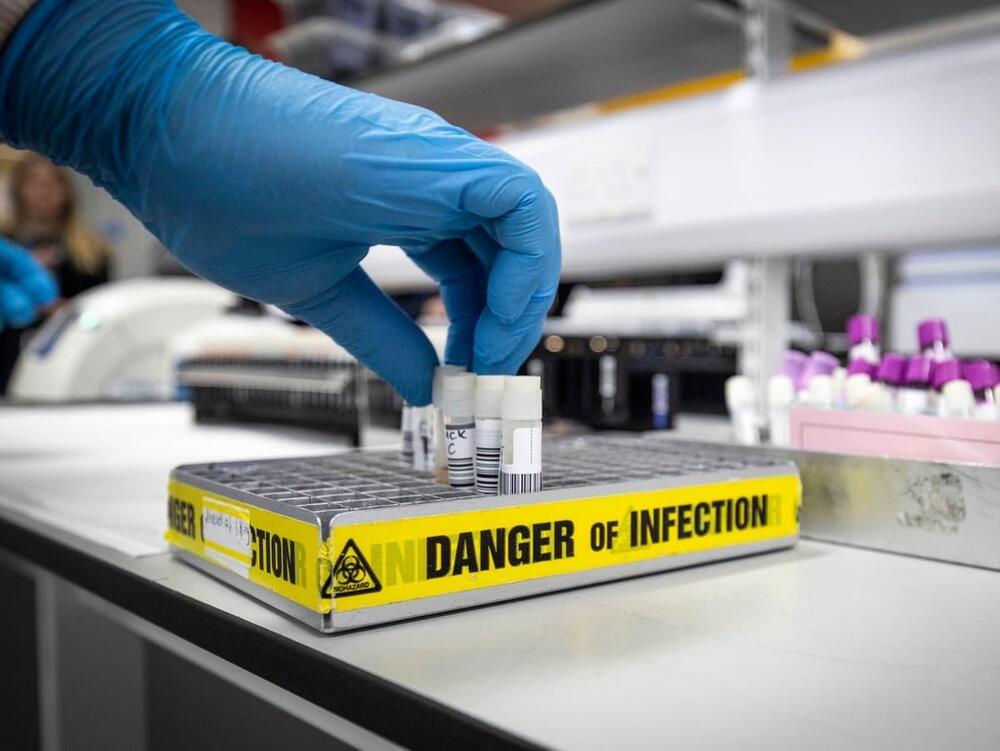#eldddir #eldddir_space #eldddir_homo #eldddir_future #eldddir_tech #eldddir_jupiter #eldddir_rockets.
Get the latest international news and world events from around the world.
Watch Boston Dynamics’ Atlas Robot Crush a New Parkour Course
The big question that may be on many viewers’ minds is whether the robots are truly navigating the course on their own—making real-time decisions about how high to jump or how far to extend a foot—or if they’re pre-programmed to execute each motion according to a detailed map of the course.
As engineers explain in a second new video and accompanying blog post, it’s a combination of both.
Atlas is equipped with RGB cameras and depth sensors to give it “vision,” providing input to its control system, which is run on three computers. In the dance video linked above and previous videos of Atlas doing parkour, the robot wasn’t sensing its environment and adapting its movements accordingly (though it did make in-the-moment adjustments to keep its balance).
Dr. Eric Verdin, MD — President and Chief Executive Officer — Buck Institute for Research on Aging
Fighting The Battle Against Biological Aging — Dr. Eric Verdin MD, President & CEO, Buck Institute for Research on Aging.
Dr. Eric Verdin, MD (https://www.buckinstitute.org/lab/verdin-lab/) is President and Chief Executive Officer of the Buck Institute for Research on Aging, as well as Professor of Medicine at University of California, San Francisco (https://bms.ucsf.edu/people/eric-verdin-md).
Dr. Verdin’s lab currently studies the relationship between aging and the immune system per associated defects in the adaptive immune system, and over chronic activation of the innate immune system, as well as programs on how metabolism, diet, and small molecules regulate the activity of histone deacetylases and sirtuins, and thereby the aging process and its associated diseases, including Alzheimer’s.
Dr. Verdin has published more than 200 scientific papers and holds more than 15 patents. He is a highly cited scientist (top 1 percent) and has been recognized for his research with a Glenn Award for Research in Biological Mechanisms of Aging and a senior scholarship from the Ellison Medical Foundation.
Dr. Verdin is an elected member of several scientific organizations, including the American Association for the Advancement of Science, the American Society for Clinical Investigation, and the Association of American Physicians. He also serves on the advisory council of National Institute on Drug Abuse at the National Institutes of Health.
Quick Tour of the SpaceX Starbase Is Like a Glimpse Into the Future
One and a half minutes. That’s how long the clip showing the Starbase facility in Texas, posted by SpaceX on Monday, is, but more than enough time for most of us to get a glimpse of how the not-so-distant future might look like.

This astronaut is spending his SpaceX launch delay cleaning up a Florida beach
‘Clean oceans, clean space,’ is what was in Matthias Maurer’s mind while filling bags on the beach.
A German astronaut is showing his love for Earth during a few extra days on the planet’s surface before his first space mission.
Matthias Maurer, who is waiting with the rest of Crew-3 team for a delayed ride to the International Space Station, has spent part of his quarantine picking up trash on the Florida beach, within range of his SpaceX launch site at NASA’s Kennedy Space Center in Cape Canaveral. The mission, which will launch four astronauts to the station on a SpaceX Crew Dragon and Falcon 9 rocket, will launch no earlier than Saturday (Nov. 6).


Ebola Vaccine: Information about Ervebo®
Ebola Vaccine: Information about Ervebo® | Clinicians | Ebola (Ebola Virus Disease) | CDC.
A safe and effective vaccine is an important tool to protect frontline workers and prevent the introduction and spread of Ebola in the United States.
Ebola virus is a zoonotic pathogen that causes severe hemorrhagic fever in humans, known as Ebola virus disease (EVD). There are four species of Ebola virus that have been known to cause disease in humans. Of these, species Zaire ebolavirus (EBOV) is the most lethal, with case fatality rates of 70–90% if left untreated. EBOV is responsible for the majority of recorded EVD outbreaks. This includes the two largest EVD outbreaks in history, the 2014–2016 West Africa outbreak and the 2018 outbreak in eastern Democratic Republic of the Congo, where over 32,000 people were infected, and more than 13,600 deaths were reported.
Importation of EVD to the United States from an epidemic region through an infected traveler is a recognized risk with the potential for spread to other people. During the 2014–2016 Ebola outbreak in West Africa, 11 people were treated for EVD in the U.S., and two of them died. Nine of these cases were imported into the U.S. Two were domestic healthcare workers who were infected while caring for the first travel-associated EVD case diagnosed in the U.S. Both healthcare workers recovered.

The US Air Force Wants To Make Jet Fuel From Carbon Dioxide In The Atmosphere
The interest of the US air force has been caught by the tech company Twelve’s project that allows the manufacture of a carbon-neutral aviation fuel called E-Jet. It can be used at any place, and it uses carbon dioxide from the air, water, and renewable energy.
Usually, the supply lines of energy, fuel, and water are the main targets for the opposing forces. The US Air Force stated that the attacks on fuel and water convoys in Afghanistan amounted to 30 percent of coalition casualties.
This process is being called “industrial photosynthesis” and makes use of the polymer electrolyte membrane electrolysis. It is a kind of inverted fuel cell, with a metal catalyst installed on a cathode to break down carbon dioxide and water into their component ions and then convert them into oxygen, hydrogen, and carbon monoxide.

Delta sub-variant expected to be dominant in UK
Displacing Delta. Expect this to dominate globally in the coming year, if truly 10% more transmissible.
An offshoot of the Delta coronavirus variant which is slowly spreading throughout the UK is expected to be dominant within a matter of months, experts believe.
Known as AY.4.2, the sub-variant is thought to be at least 10 cent more transmissible than its predecessor, with analysis underway to determine what accounts for its increased infectiousness.
The UK Health Security Agency (UKHSA) has said that early tests do not suggest that AY.4.2, which has been labelled a ‘Variant Under Investigation’, has acquired the ability to evade immunity generated by infection or injection.
General Artificial Intelligence BREAKTHROUGH? You decide! [EP 149]
DeepMind, part of Google, announces General AI breakthrough with a true learning AI. First, they built a dynamic environment (like a game) that can change it’s own layout — XLand. Then, they use Deep Learning and Reinforcement Learning combined — Deep Reinforcement Learning — to create an AI the can learn without training at all or data about what it’s doing. The AI played 700,000 games in 4,000 unique worlds! The AI performed 200 BILLION training steps while performing 3.4 million UNIQUE (non-taught/programmed) tasks.
Support The Show On Patreon:
https://www.patreon.com/theaiguide.
Follow The AI Guide on Twitter:
http://www.twitter.com/DavidRa20284933
Like The AI Guide on Facebook:
http://www.facebook.com/DavidTheAIGuide.
Follow The AI Guide on Instagram:
https://www.instagram.com/theaiguide/
Follow The AI Guide on LinkedIn: